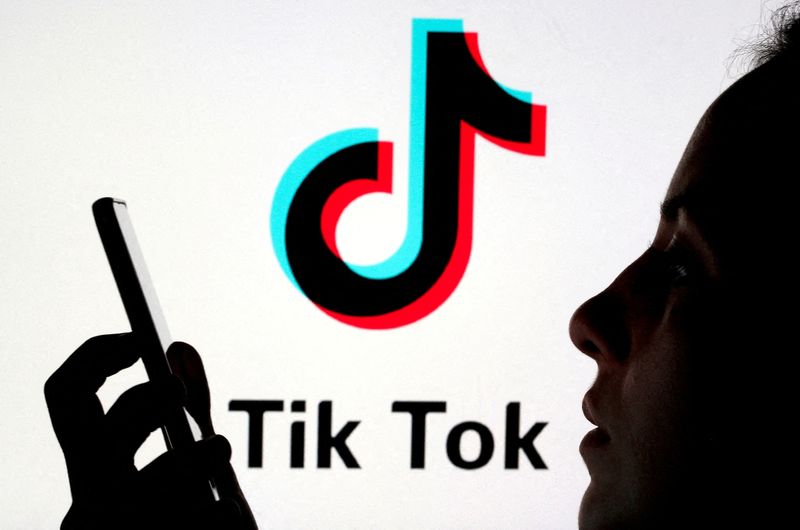By Alexandra Alper and David Shepardson
WASHINGTON (Reuters) - The Biden administration is under pressure to ban popular Chinese-owned social media app TikTok, but any such move likely hinges on passage of a new law that bolsters the government's authority to regulate speech, experts said.
Pressure is mounting from lawmakers and national security hawks to ban TikTok, which is owned by China's ByteDance, over fears the app could censure content, influence users, and pass Americans' personal data to Beijing, allegations the company denies.
Courts blocked a prior bid by the Trump administration to ban the app in part on the grounds that such a move violated free speech protections.
That means any move to block the app likely depends on passage of legislation like the RESTRICT ACT, a bipartisan bill introduced by Senators this month granting the Commerce Department new power to ban foreign technology that poses a national security risk. That would circumvent the speech protections embedded in existing law, lawyers and China watchers said.
"RESTRICT is really helpful because it gives this completely new, from scratch, legal authority that doesn’t have any of those complications" under other laws, said Emily Kilcrease, a senior fellow at the Center for a New American Security and former deputy assistant U.S. Trade Representative. "It’s a much stronger, cleaner legal authority."
TikTok previously criticized the RESTRICT act, saying "the Biden Administration does not need additional authority from Congress to address national security concerns about TikTok: it can approve the deal negotiated with (the Biden administration) over two years that it has spent the last six months reviewing."
TikTok chief executive officer, Shou Zi Chew, will testify Thursday before the House Energy and Commerce Committee and face tough questions from those lawmakers who want to ban the app.
TikTok, which FBI director Christopher Wray said in November could be used to "control software on millions of devices," has been in the crosshairs of the U.S. government for years, since powerful Republican Senator Marco Rubio called for its review in 2019.
Courts struck down former President Donald Trump's bid to block TikTok in 2020 with an executive order that granted the Commerce Department similar authorities as the RESTRICT act.
In that instance, the executive order relied on by Trump had a major hurdle: it derived its power from the International Emergency Economic Powers Act, which carves out the import or export of "informational materials," and "personal communication" through the Berman amendment, which sought to protect speech.
Meanwhile, a move by the Committee on Foreign Investment in the United States, a powerful body that scrutinizes foreign investments for national security risks, to force Bytedance to divest its U.S. TikTok business remains mired in negotiations two and a half years later.
White House national security adviser Jake Sullivan endorsed the RESTRICT Act on March 7 saying it "would strengthen our ability to address discrete risks posed by individual transactions, and systemic risks posed by certain classes of transactions involving countries of concern in sensitive technology sectors."
But the bill will likely provide no immediate solutions for those calling for a ban on the app. While the legislation enjoys bipartisan support, no companion bill has yet been introduced in the House. It's also not yet clear when Congress might take it up -- and some think it might be attached to a year-end defense measure.
Some experts said using the new legal tools to ban TikTok could still invite First Amendment challenges.
"Realistically, I don't see this tool coming into play until 2024," said CFIUS lawyer Nicholas Klein with DLA Piper. "And there will most likely be a legal challenge if its used to ban TikTok."
